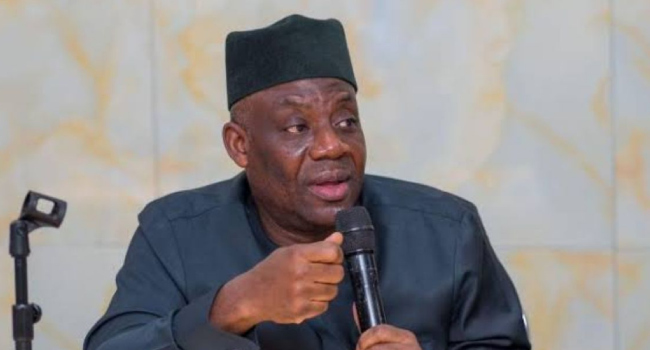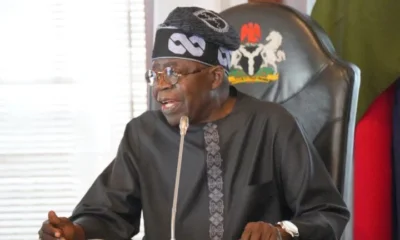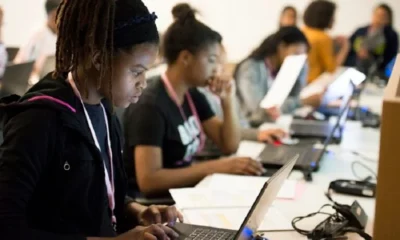The Federal Government on Wednesday announced that it has increased scholarship grants to Nigerian students at all tertiary levels by 50 per cent.
It described the move as the “landmark reform of Nigeria’s national scholarship programme—its most ambitious overhaul in more than a decade,” aimed at reducing financial pressure on students and families and improving access to quality education nationwide.
The Minister of Education, Olatunji Alausa, made the announcement in a statement shared on his X (formerly Twitter) account, explaining that the initiative aligns with the government’s strong commitment to building a more inclusive, knowledge-based society.
Alausa stated, “Through the Federal Ministry of Education, the Federal Government has significantly increased scholarship grants across all academic levels, easing the financial burden on students and families, while enhancing access to quality education for all. This initiative is a key pillar of President Bola Ahmed Tinubu’s Renewed Hope Agenda, which places education at the heart of Nigeria’s transformation into a $1 trillion economy.
“To tackle the rising costs of education and to ensure that no deserving student is left behind, scholarship amounts have been increased by 50 per cent across the board. PhD students will now receive ₦750,000 annually (up from ₦500,000), Master’s students ₦600,000 (from ₦400,000), and undergraduate, HND, and NCE students ₦450,000 (up from ₦300,000).”
He said the updated programme focuses on merit, equity, and alignment with national development goals, particularly in Science, Technology, Engineering, Mathematics, Medical Sciences (STEMM), and vocational training.
He continued, “These enhanced awards apply to all major programmes, including the Nigerian Scholarship Award. As earlier pledged, we have also restructured the Bilateral Education Agreement (BEA) scholarship scheme.
“While existing beneficiaries will continue to receive their entitlements, funds previously earmarked for new international awards have been repurposed to introduce two new strategic scholarship categories under the national programme. The first targets students in public polytechnics pursuing STEM and vocational training, with ₦1 billion allocated to this group.
“The second is tailored for students studying Medicine, Dentistry, Nursing, Pharmacy, and Physiotherapy in public universities, also supported with ₦1 billion. These new categories reflect our commitment to investing in high-impact sectors critical to national development.”
He said the government has adopted a new allocation model designed to promote fairness and maximise results.
According to him, the new structure allocates 50 per cent of scholarships to undergraduate students, 25 per cent to Master’s students, and 25 per cent to PhD candidates.
“Of each category, 70 per cent of awards will support students in STEMM disciplines, while 30 per cent will support the Social Sciences. In a deliberate move to foster inclusion, five per cent of all scholarships will be reserved for students with disabilities,” he said.
He revealed that more than 15,000 students are projected to benefit from the Nigerian Scholarship Award, Education Bursary Award, and the revamped BEA programme.
He said implementation will be managed by the Federal Scholarship Board, working alongside an Inter-Ministerial Committee chaired by the Ministry’s Permanent Secretary.
Alausa added, “This committee includes representatives from the National Assembly, Federal Character Commission, Ministry of Women Affairs, and other key institutions to ensure transparency and accountability. With a total budget of ₦6 billion allocated for the 2025–2026 cycle, this reform is more than a policy—it is a bold national investment in our youth, our future, and our collective prosperity.
“We are not just funding education—we are building the human capital foundation for Nigeria’s long-term success. I remain fully committed to ensuring this renewed scholarship programme delivers on its promise, and I call on all stakeholders—students, parents, institutions, and the broader public—to work with us in realising the full potential of this transformative initiative.”

 BIG STORY3 days ago
BIG STORY3 days ago
 BIG STORY23 hours ago
BIG STORY23 hours ago
 BIG STORY4 days ago
BIG STORY4 days ago
 BIG STORY18 hours ago
BIG STORY18 hours ago
 BIG STORY3 days ago
BIG STORY3 days ago
 BIG STORY4 days ago
BIG STORY4 days ago
 BIG STORY2 days ago
BIG STORY2 days ago
 BIG STORY3 days ago
BIG STORY3 days ago





















